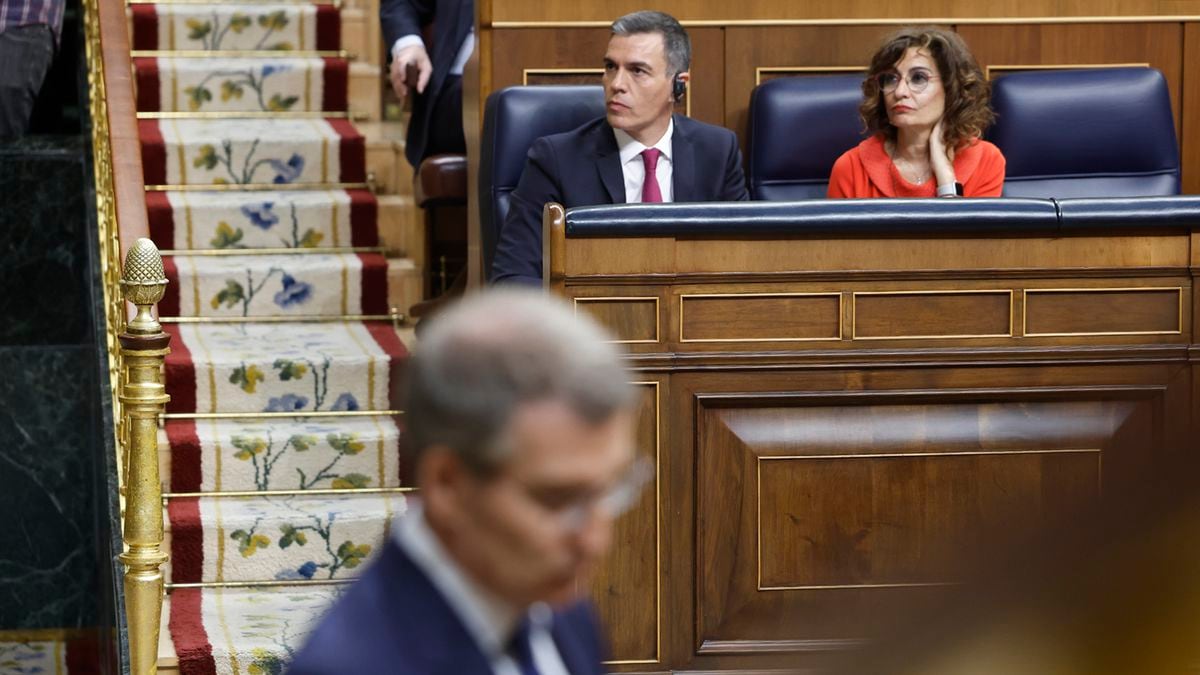The covid vaccine has been the great springboard from which economies are gaining momentum. And Spain, with 54.7% of the population with the complete pattern, will be one of the engines of the euro zone in 2022. The International Monetary Fund (IMF) has lowered its growth forecasts for the Spanish economy by two tenths with respect to to those formulated last April, up to 6.2%. However, the body headed by Kristalina Georgieva has increased its prospects for next year from 4.7% to 5.8%. These projections, which already reflect the impact of the European recovery plan, place Spain as the advanced economy that will expand the most in 2022.
The vaccination process has become the line that, until now, divides the world into two parts: in one, there are the countries that this year finally see their economies rebound due to the speed with which immunization is spreading, and in another, those who are still stuck due to lack of medicines.
Faced with this scenario, the IMF keeps its global forecasts intact: the planet will grow by 6% in 2021 and 4.9% in 2022. But the guts of these data are not the same.
The advanced economies will expand this year half a point more than what was envisaged in April, while the emerging countries and those that are developing will do so 0.4 percentage points less.
More information
The IMF will revise its forecasts upwards, but warns about the unevenness of the recovery
The IMF raises its forecast for Spain to 6.4% in 2021, but it will be one of the EU countries that takes the longest to recover
Western economies, according to the IMF, are not only taking advantage of the deployment of the vaccine, but also the new stimuli launched to the economy in the United States, the United Kingdom or the EU, which this month is giving the green light to the fund's disbursements. Next Generation EU recovery plan.
The agency expects Spain, France, Germany and Italy to gain momentum in the second half of the year and continue to grow in 2022 thanks to the progressive opening of the economy, which will be boosted thanks to the savings accumulated by households during confinement and by the restrictions imposed in the leisure, tourism or culture sectors.
The IMF expects Spain to grow slightly less than it valued in April, which confirms that its economy will not yet recover its size prior to the outbreak of the pandemic.
However, he now sees a more powerful rebound for next year.
The numbers are still far from the optimism shown by the Government, which projects an expansion of 6.5% in 2021 and 7% in 2022 and more in line with the European Commission, which forecasts 6.2% this year and 6 , 3% the next one.
In any case, the IMF expects Spain to grow in 2022 well above the average for the euro zone (4.3%) and the other three major partners of the single currency: Germany (4.1%), France ( 4.2%) and Italy (4.2%).
Uneven growth
In more than half the world, however, recovery will take long. The IMF estimates that low-income countries will need $ 200 billion (€ 170 billion) to fight the virus and, subsequently, another $ 250 billion (€ 212 billion) to regain the convergence paths they had been recording before the pandemic. The numbers are devastating. By the end of June, 3 billion doses of the covid vaccine had been administered worldwide. Seventy-five percent were dispensed in advanced economies and China, which are on track with their immunization goals for their population. At the other extreme, less than 1% of citizens living in low-income countries have received a dose.
Despite the fact that the world is advancing at two speeds, the IMF is clear: "Recovery is not guaranteed even in countries where infections are now very low, since the virus circulates elsewhere."
In other words, if the vaccine is not spread to all corners of the world, the danger that new variants will put the fight against the virus in check will persist.
And that is precisely the main risk of the world economy.
"Recovery has been seriously delayed in countries that experienced new waves," the IMF report said.
In particular, in India.
But also in the UK, China or Australia.
Another risk is that the US plan, whose effects are expected to go beyond its borders, will have a smaller impact than expected.
Inflation under surveillance
The IMF notes that the current rise in prices is due to unusual events linked to the pandemic and mismatches between supply and demand, such as the shortage of chips that has meant halting the production of vehicles in several European factories. The report predicts inflation of 2.4% in 2021 and 2.1% in 2022, so that it will gradually return to its pre-pandemic ranges. In emerging and developing countries, price increases will even more than double (5.4% this year and 4.7% next year) due to higher food prices.
In the opinion of the Washington-based body, central banks "in general" should take into account that these inflationary pressures are "transitory" and avoid making policy adjustments until there is "more clarity on the dynamics of underlying prices." "Clear communication from central banks on the prospects for monetary policy will be key to setting inflation expectations and protecting against premature tightening of financial conditions," the document states. Even so, the IMF does not rule out any scenario: "There is a risk that transitory pressures will become more persistent and central banks will have to take preventive measures."

/cloudfront-eu-central-1.images.arcpublishing.com/prisa/27UCLFIAIZE4XOJOREPJVQV2VA.jpg)












